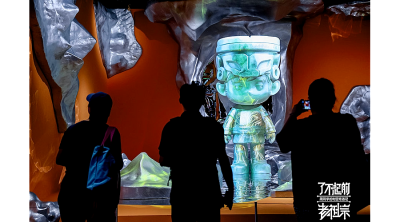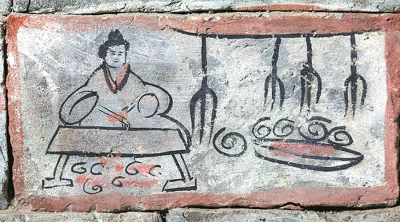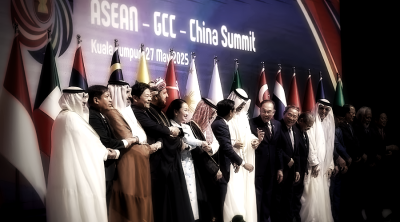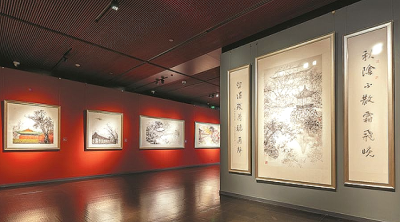The Chinese province of Guizhou has a truly remarkable tourism slogan, “Invigorating Guizhou” (爽爽的贵州). And verily, when the sultry heat is beyond tolerance everywhere else, the summer air temperature in Guizhou is a cosy 18 to 25 degrees. Surprisingly cooling and invigorating!
As such, Guizhou will spontaneously come into mind when people from all over China think of a place to beat the summer heat. Zhijin county and Zunyi, for instance, are truly cooling yet still warm enough for an excellent retreat. As if that’s not enough, the country’s tech giants in the likes of Lixiang, Tencent and JD.com are moving their major big data processing centres to the caves of Guiyang to fend off the overheating issue.
The inland province of Guizhou spans across a land mass of 176,110 square kilometres, 90% of which is mountainous terrains straddled by rivers and streams with almost no flat plains. Even the provincial capital of Guiyang with its population of five million is perched at a height of 1,275 meters, and almost all of the inhabitable and arable lands in the 88 counties and municipalities in the province are tucked snugly in narrow valleys and riverine ravines that put the province’s transportation capability to serious test.
Fortunately, Guizhou has witnessed an influx of capital and personnel from the rest of the country, significantly improving its infrastructure, including crisscrossing freeways and elevated highways, a comprehensive network of railways, and impressively refurbished old town quarters into modern housing precincts.
The residents of Guizhou have been basking in “Golden 10 years” of breakneck development. Unfortunately, they now have to bear the brunt of excessive public debts as a result of over-development since the onset of the coronavirus pandemic.
That said, the majority of people in Guizhou are intrinsically optimistic. They are used to the rustic lifestyle in a pristine and refreshing environment. In addition, the people there are also grateful for the gift of Mother nature, with countless towering mountains, lush forests and rivers making a confluence here in Guizhou. The entire ecosystem here is so perfectly preserved, including Asia’s most beautiful Huangguoshu waterfall.
Besides, the 17 minority groups and residents in 14 indigenous hamlets in Guizhou are blessed with endless bliss endowed by Nature.
Cai, a retired health minister, told me the indigenous peoples of Guizhou, in particular those from the Yi, Miao, Bouyei, Dong, Tujia and Sui minority groups, would customarily put on their traditional ethnic accessories and costumes singing and dancing carelessly to the tune of impromptu self-composed folk songs.
I have to say that I do agree with Cai. As a matter of fact, the most rewarding experience during travelling is nothing more than immersing ourselves in the local culture and lifestyle.
I love the traditional snacks and culinary styles of Guizhou. Even a seemingly simple plate of fried highland cabbage is given a sensory boost with highland spices and chilli.
Yuan Xinglong and Su Cheng, the two great friends at Guizhou inbound travel agency, have made special arrangement for me to try the local speciality dish “sour soup fish” where the fish is a freshwater catch such as grass carp, carp or snakehead, stewed in a variedly spiced appetising sour broth.
Of course, a visit to Guizhou is not complete without savouring the legendary Maotai wine. Unexpectedly, a bottle of Guizhou Maotai fetches a manufacturer’s price of CNY1,499, but will instantly soar to CNY2,299 after changing hands, with the liquor’s price rising in tandem with its age, and yet it is often out of stock! A casual chat with Guizhou friends over the dinner table invariably revolves around Maotai wine, along with Maotai ice cream, too. As the saying goes, a Maotai factory can feed the entire population of the province of Guizhou.
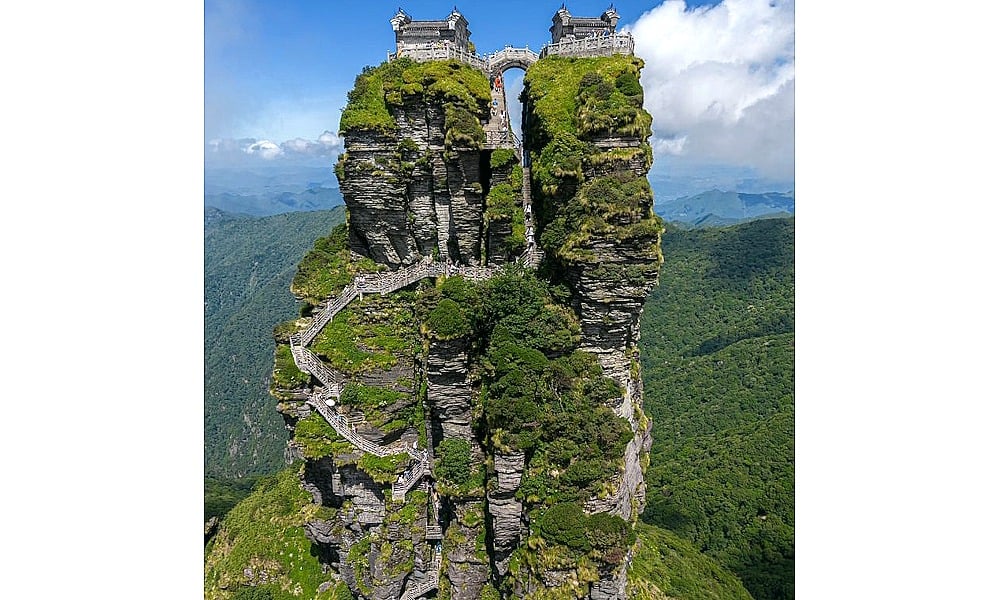
And then we came to the famous Lao Gan Ma chilli sauce, a Guizhou speciality boasting an annual turnover in excess of CNY5 billion. Su said: You should try this bottle. This is the original Guizhou Lao Gan Ma chilli sauce founded in 1984. He insisted: Guizhou Lao Gan Ma is the best among China’s top five chilli sauces, using Guizhou’s small chilli pepper with its unique aroma which is persistently missed by Guizhou natives far away from home. Unfortunately, after the founder’s son took over the business from her, he changed the chilli species and as a result, Lao Gan Ma’s sales plummeted.
I was wondering: even though this province is far from the major population centres, Guizhou with its population of 38.56 million shouldn’t have become so impoverished. Could it be because the provincial government’s reserves have dried up after the pandemic?
But the thing is, Guizhou is blessed with a wealth of natural resources, and being able to make its residents satisfied and happy should be the biggest source of happiness for the province.
We later moved over to another topic. Have you ever heard of Guizhou’s “Tianyan” (Sky Eye)? Thanks to its pristine natural environment, clean air and high visibility, a village in Guizhou’s Pingtan county has been selected as the site for the world’s biggest 500-meter diameter telescope which many in the province take great pride in.
During this trip to Guizhou, I had the pleasure to meet Zhang Guangyan, the tour guide at Wujiang Village who is a super friendly and amicable native of Zunyi.
For so many years I have been utterly impressed by the farsightedness of China’s private businesses as well as provincial and county governments for their dedicated effort in promoting the local tourism. They have helped create countless job opportunities for the residents.
Wujiang Village has been a CNY5 billion tourism product from such public-private collaboration. The project covers a land area of 4.5 square kilometres, and includes 12 different street zones created through integrating the locality’s natural relief and hilly terrains.
During this year’s Labor Day holidays, the newly opened Wujiang Village hosted more than 30,000 visitors. Another AAAAA scenic area, the 126 square kilometre Baili azalea forest is teeming with over 60 species of wild azalea trees (the oldest being 1,260 years old) which will burst into full bloom every April when more than two million domestic tourists flocked in to admire its beauty this year alone.
Similarly, the Pingyuan ancient town known for its mild weather throughout the year is always packed with tourists.
Unfortunately, I didn’t get to visit the Zhijin Cave National Geopark and Mount Fanjing Buddhist site. Well, perhaps you can join me as we make a pilgrimage to these sites in future. What do you say?
As we were about to leave the provincial capital of Guiyang, Yuan told me about the 1935 Zunyi Meeting, a landmark historical event that confirmed Mao Zedong’s leadership status in the Communist Party as well as the Red Army.
Additionally, he also made mention of Han Hong’s famous song “The Sky is Getting Clear,” the creation of which has drawn inspiration from Guizhou but has since shot to international fame.
In short, even if Guizhou is relatively poor, it is richly blessed with breathtaking natural beauty, and indeed a visit to the province is a truly invigorating experience!
(Lee San is Founder and Group Executive Chairman of Apple Vacations. He has travelled to 132 countries, six continents, and enjoys sharing his travel stories and insights. He has also authored five books.)
ADVERTISEMENT
ADVERTISEMENT






